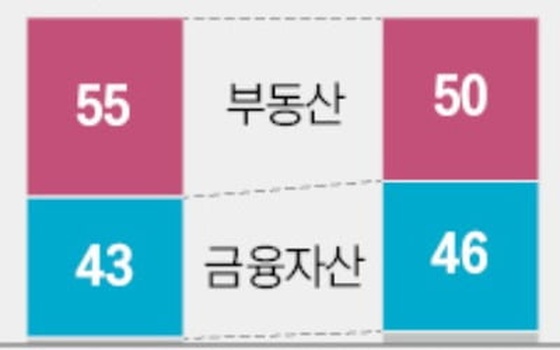입력2006.04.04 03:16
수정2006.04.04 03:20
부정부패는 그 경향과 정도가 다르긴 하지만 시간과 장소를 막론하고 발생한다.
좁은 도덕적 관점에서 보자면, 부정부패는 개인의 부정행위에 의해 일어난다.
뇌물을 주고 받는 것은 비윤리적이며, 이에 관계된 사람은 멸시와 징계를 받아야 마땅하다.
하지만 윤리규범을 강조하거나, 가혹한 처벌로 위협을 하는 등의 접근법으로 부패를 뿌리뽑으려는 시도는 그리 성공을 거두지 못하고 있다.
부패는 단순히 개인윤리의 문제가 아니라, 문화 및 경제원리와 깊은 관계가 있기 때문이다.
역사적으로 볼 때에도, 유럽 내에서 부정부패는 북부지방보다 남부지방에서 더 빈번하게 일어나는 듯하다.
그렇다고 북부 유럽인들이 더 윤리적이라고는 할 수 없다.
사회학적 설명에 따르면 이는 북부는 개신교, 그리고 남부는 천주교의 영향을 많이 받았기 때문이라고 한다.
개신교가 '죄를 멀리하는 것은 개인의 책임'임을 강조할 때, 천주교는 '세상은 죄로 가득하며, 모든 인간은 죄인이기에 교회에서 죄를 고하여 자유를 얻어야 한다'고 주장한다.
천주교는 인간의 나약함을 더 받아들임으로써, 개인과 부정부패 같은 죄악된 행위 사이의 벽을 낮추어주었다.
이러한 분석은 너무 이론적이고 과장된 듯 보일 수 있다.
그리고 물론 유럽의 남부와 북부의 차이에는 여러 다른 이유도 있을 것이다.
하지만 유럽 이외의 지역에서도 문화가 부정부패에 영향을 끼치는 증거들을 찾을 수 있다.
강한 유교 전통을 가진 나라들도 부패 경향이 있는 듯하다.
사회학자들의 설명에 따르면 유교는 가족간의 유대관계와 인간관계를 중요시한다고 한다.
개인의 의무와 충성은 유교사회에서 매우 중요하게 여겨진다.
이러한 가치들은 행동을 결정하는 법과 규범들보다 더 중요시되기에, 부정부패를 가져오기 쉽다.
즉 친척이나 지인이 그들의 부채로 인해 어려움에 처해 있다면, 도움을 주는 것이 행동강령이나 규제, 심지어 법보다 더 중요하다.
그러면 부패의 경제학은 어떠한가? 모든 나라에서 부정부패는 불법이며, 정부의 반부패 노력에 따라 강도가 다르긴 하지만 처벌을 받게 마련이다.
뇌물을 주거나 받는 사람은 이성적 의사결정자로서 뇌물로 인한 이익을 발각의 위험 및 처벌의 비용과 비교하게 된다.
이익이 크고 인지된 위험이 낮다면 분명히 더 많은 부정부패가 일어날 것이다.
그러나 처벌을 강화한다고 해서 부정부패의 문제가 해결되지 않는 것은 지난 경험을 통해 알 수 있다.
사형이 있는 나라의 살인율은 사형이 없는 나라와 그리 큰 차이가 나지 않는다.
이보다 범죄로 인한 이득을 줄이는 방법이 더 효과적일 것이다.
공공분야의 부정부패만 보자면, 정부나 행정부가 강할 수록 뇌물을 주고 받을 확률은 더 크다.
모호한 법과 규제를 해석하는 권리가 크고, 사조직에 고수익의 공공 프로젝트를 임의로 일임하며, 그리고 규제를 가하고, 엄격한 조사를 결정하는 권리마저 관료의 재량권에 달려 있을 수록 사람들은 강한 뇌물 수수의 유혹을 받게 된다.
실제로 이것은 도덕성 이전에 순수한 경제적 결정의 문제라고 할 수 있다.
하지만 반대로 공무원이 법을 제대로 준수하고, 법도 구체적이며, 부당한 일을 겪은 사람들이 법에 의해 정당한 결과를 되찾을 수 있게 된다면, 부정부패의 자리는 점점 축소돼 설 자리를 잃게 될 것이다.
결론적으로, 부정부패는 문화와 깊은 관계를 갖는다.
그렇기에 쉽게 뿌리뽑히지는 않을 것이다.
그러나 부정부패를 촉진하는 문화적 가치들은 전근대적이거나 전통사회에서부터 기인한 것이다.
근대화와 시장의 논리는 개별주의와 인척관계가 아닌 보편주의와 법의 원리를 촉진한다.
경제발전을 위해 부정부패를 뽑아낸다라는 관점은 그리 희망적이지 않다.
역으로 근대화가 더 이루어졌거나 경제적 발전이 이미 이루어졌을 때에 부정부패가 근절될 수 있는 것이다.
--------------------------------------------------------------
The Economics of Corruption is a universal phenomenon. It has occurred at all times and it still occurs in all countries and cultures. Even so, some societies seem to be more prone to it than others. From a narrow moralistic viewpoint, corruption is a problem of individual misbehavior: Giving and accepting bribes is nothing but unethical and people engaging in it deserve nothing else than contempt and punishment.
Looking at the prevalence of corruption, moralistic approaches to root it out by stressing ethical standards and threatening severe punishments have not been very successful. The reason is that corruption is not just a problem of personal ethics, it is deeply related to culture and simple but very strong economic mechanisms.Within Europe, judging not just from the present situation but a longer historical view, corruption seems to be more prevalent in southern than in northern European countries. Does this imply that northern Europeans are better, i.e. more ethical people? Rather not.
A sociological explanation offered is that Northern Europe's culture is strongly influenced by Protestantism, whereas Southern Europe is influenced by Catholicism. Now, no serious analyst would dare to say that Protestantism is of higher ethical standards than Catholicism. The explanation brought forward is that Protestantism heavily stresses each individual's responsibility to avoid sinful behavior, whereas Catholicism stresses the fact that the world is full of sins, all humans are sinners and therefore should revert to the church for confessing their sins and getting relieve.
By being more accepting of human weaknesses, Catholicism lowers the barriers for individuals to engage in sinful behavior like corruption. This analysis might seem very theoretical and too far stretched. And of course, there are many more factors responsible for the difference in corruption levels between Northern and Southern Europe. However, there is evidence from outside Europe as well, supporting the importance of culture for corruption. Countries with a strong Confucian background seem to be prone to corruption as well.
The explanation offered by social scientists is that Confucianism stresses the importance of family ties and personal relationships. Personal obligation and loyalty are highly valued in Confucian societies. Such values are conducive to corruption because they are perceived to be even more important than laws or rule abiding behavior. I.e., if a relative or another person someone is highly indebted to, asks for a favor or even help, providing such help is more important than sticking to abstract code of conducts or even laws and regulations.Now, what about the economics of corruption?
In all countries, corruption is illegal and threatened by punishment - even so to different degrees, mainly with regard to governments" efforts to enforce anti-corruption laws. As a rational decision maker everyone giving or accepting bribes has to weigh the obvious benefits against the risk of detection and the costs of eventual punishment. Obviously, the higher the benefits and the lower the perceived risks, the more corruption will occur. However, experience shows that just raising levels of punishment does not help much. Countries with capital punishment seem not to have lower homicides rates than countries without capital punishment. Lowering the benefits of crimes is much more efficient.
Let's just look at corruption in the public sector. The more powerful a government or administration is, the higher the incentives for bribes. If people feel at the mercy of bureaucrats, because they have the power to interpret vague laws and regulations, the power to award big public projects or licenses for profitable businesses or the power to more or less discretely impose sanctions and heavy investigations, then people have a strong incentive to engage in bribes. Actually, it can be a matter of economic rationality and even pure survival to revert to it.
On the contrary, if a public administration is strictly bound by the rule of law, laws are well defined, and everyone feeling disadvantaged can easily revert to an efficient and impartial jurisdiction, there is much less need and room for corruption. What is the conclusion from all this? Corruption is deeply related to culture, therefore it cannot be easily rooted out. However, the cultural values promoting corruption are values originating in traditional, pre-modern societies.
Modernization and the logic of market forces promote universalism, the rule of law instead of particularism and personal ties. This is hopeful on the one hand, implying that things might get better with more economic development. However, it is less hopeful from another perspective, implying that rooting out corruption as a means to promote economic development might not work. It might rather be the other way around: corruption can only be rooted out or rather be contained to a lower level if a higher degree of modernization and economic development has already been achieved.
![[이소연의 시적인 순간] 사랑, 나보다 더 늦은 사람에 대한](https://img.hankyung.com/photo/202404/01.36539730.3.jpg)
![[한경에세이] 예술, 환경에 어떤 영향 미칠까](https://img.hankyung.com/photo/202404/07.36065943.3.jpg)
![[이소연의 시적인 순간] 사랑, 나보다 더 늦은 사람에 대한](https://img.hankyung.com/photo/202404/07.29648277.3.jpg)


![월가 "인텔 망가졌다"…구글 9년 만에 최고의 날 [글로벌마켓 A/S]](https://timg.hankyung.com/t/560x0/photo/202404/B20240427071917087.jpg)








